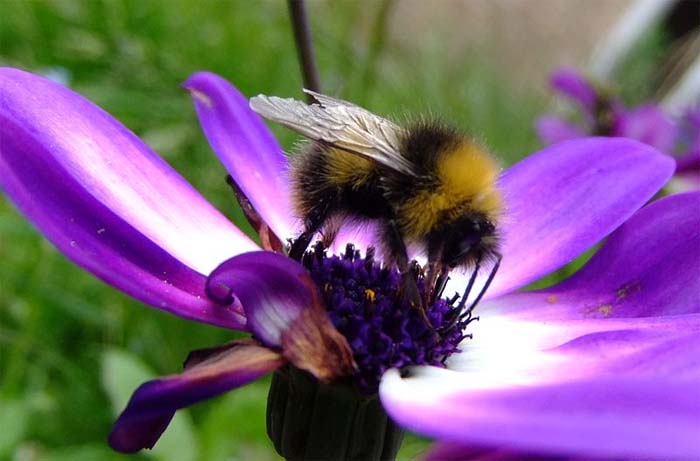
The Government has rejected the scientific case for a ban on pesticides linked to bee decline, not only for crop-growing farmers but for people using them in their gardens.
In its response to the Environmental Audit Committee report on Pollinators and Pesticides, the Government rejects the mounting peer-reviewed evidence that led the European Commission to conclude that a moratorium on the use of three neonicotinoid insecticides is a proportionate and necessary step to protect bees and other insect pollinators.
The Government acknowledges that it must implement the European Commission ban in the UK, but its response highlights the work it will be doing ahead of the 2015 Europe-wide review of the environmental, agricultural and economic effects of the moratorium. The Government has also refused to introduce the monitoring scheme for insect pollinators recommended by the Committee.
It comes following the publication of the Government’s response to the Environmental Audit Committee (EAC) report on pollinators and pesticides, in which Government says more should be done to understand and tackle the issues facing pollinators, but that action must be led by science.
NFU horticulture adviser Dr Chris Hartfield said: “This response from Government is a very balanced and sensible reaction to the EAC’s report.
“Pollinators are essential for maintaining our biodiversity and pollinating many agricultural and horticultural crops. To ensure they are rightly protected from whatever damaging challenges they face, it is essential that our actions are led by the science.
“The NFU is committed to the approach of producing more while impacting less on the environment and under this approach we are very mindful of the impacts of agriculture on pollinators. While acknowledging the importance of pollinators, the Government’s response also importantly recognises the value to society of food production and the underpinning role pesticides play in that production. These benefits have to be part of the consideration when managing the risks posed to the environment by pesticides.”
The NFU believes farming’s commitment to protecting the environment is already helping pollinators. Recent research (see here) by an international group of bee experts has linked conservation work and the agri-environmental management done by farmers and growers to the slowing down of bee, hoverfly and wild flower losses in recent years.
“The good news we should be celebrating is that declines in bumble bee biodiversity in Britain, have slowed since 1990, and for other wild bees - the solitary bees that make up around 90 per cent of our bee species - biodiversity has increased significantly in recent decades,” added Dr Hartfield.
Joan Walley MP, Chair of the Environmental Audit Committee, said: "I am disappointed that the Government has not accepted the great weight of scientific evidence that points to the need for the ban on these pesticides in line with the precautionary principle.
The Government acknowledges that it must implement the EU wide moratorium in the UK, but it is still refusing to acknowledge the case for a ban on these products being used in people’s gardens.
There is no justification for people continuing to use these products on their Dahlias when they could be having a detrimental effect on pollinator populations. Suspending the sale of neonicotinoids for home use would create an urban safe haven for bees.
The Committee will maintain its watching brief in the run-up to the 2015 review of the moratorium and will judge the available evidence on its merits; we hope that the Government will adopt a similar approach."
Disease, habitat loss and climate change can all affect insect populations, but a growing body of peer-reviewed research suggests that the use of one group of insecticides is having an especially damaging impact on pollinators — neonicotinoids. Applied to seeds, these systemic pesticides are widely used in the UK on oilseed rape, cereals, maize, sugar beet and crops grown in glasshouses.
The European Commission has agreed to introduce an EU-wide moratorium on the use of imidacloprid, clothianidin and TMX on crops attractive to bees, due to start on 1 December 2013. In August Syngenta and Bayer, the manufacturers of the three neonicotinoids involved, initiated legal action in the European Court against the Commission’s decision. The UK has refused to take domestic action or to support the EU proposal.
Many of the UK's largest garden retailers, including B&Q, Wickes and Homebase, have voluntarily withdrawn non-professional plant protection products that contain neonicotinoids. The Committee report recommended a full ban on the sale of neonicotinoids for public domestic use, in order to create an urban safe haven for pollinators.
